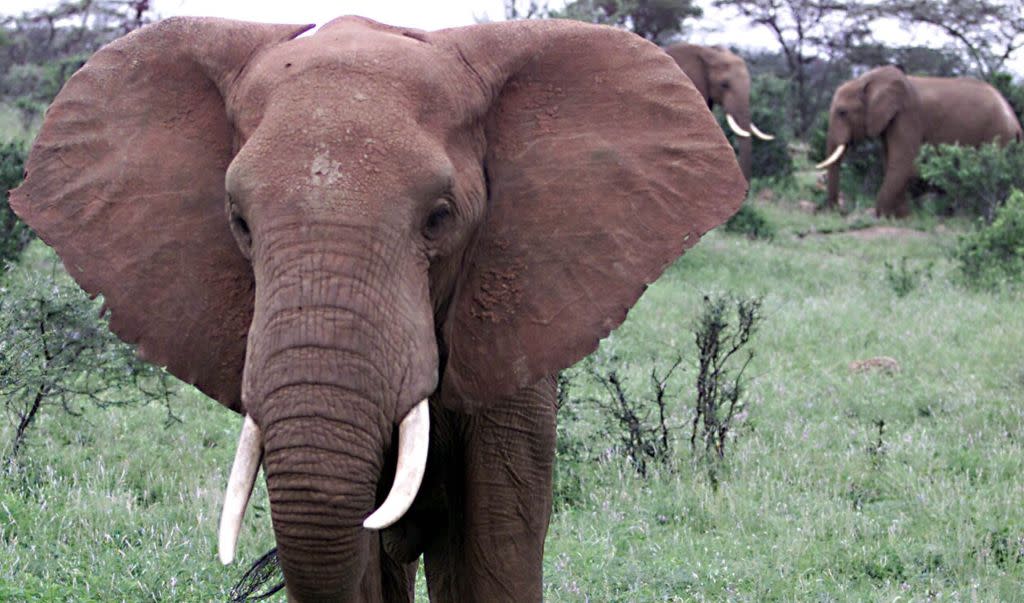An African ranger’s message to Hong Kong’s ivory traders: Stop this now, “preferably today”

Erick Mararv, a frontline fighter in the battle against elephant ivory poaching, has been shot while on a mission to stop the hunters who prey upon elephants in Africa for the lucrative illegal ivory trade. His latest mission to stop the poaching that kills a hundred elephants for their ivory every day was less perilous, but no less important: He went to the world’s trading hub for ivory, Hong Kong, to speak about the human cost of the trade, which he said will claim at least 500 rangers’ lives in the coming five years.
“The truth is that people are being killed, limbs being chopped off, people are seeing their families being destroyed because of the trade,” said Mararv, the manager Garamba National Park in the Democratic Republic of Congo in Africa, where more than 20,000 elephants are killed every year, on Radio Television of Hong Kong (RTHK) today.
Hong Kong is considered the world’s largest ivory trading market thanks to China, which has one of the most demanding appetites for ivory in the world, according to the World Wildlife Fund. And Hong Kong has been slow to phase out both the legal and illegal ivory market, even compared to China, which will ban the ivory trade by the end of this year.
The Hong Kong government proposed phasing out all local ivory trade in December, in legislation that would end the business in three steps over five years’s time—including an immediate ban on import and export of hunting trophies and certain ivory carvings. The city’s lawmakers are still discussing (link in Chinese) the plan.
Ivory traders have strongly opposed the proposal and demanded compensation if it is implemented. Meanwhile, sales of ivory have dropped nearly 60%, with the wholesale price of uncrafted raw ivory sliding from HK$15,000 ($1,924) per kilogram (2.2 lbs) to around HK$4,000 ($513), local online media reported (link in Chinese) on June 4.
“I don’t think compensation can work,” said Mararv. “It’s completely the wrong message. We cannot pay for this commodity.” Instead, he argued, the trade should be banned immediately, “preferably today.”

Sign up for the Quartz Daily Brief, our free daily newsletter with the world’s most important and interesting news.
More stories from Quartz:

